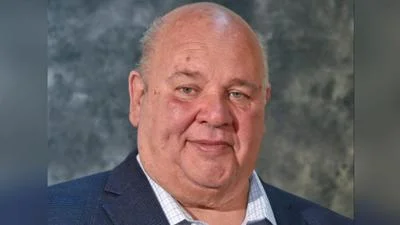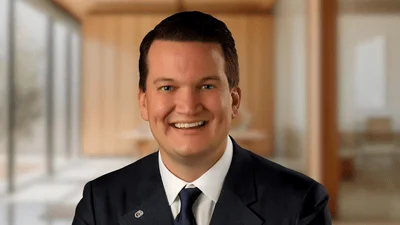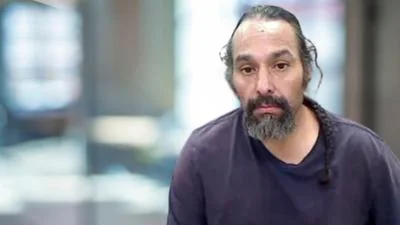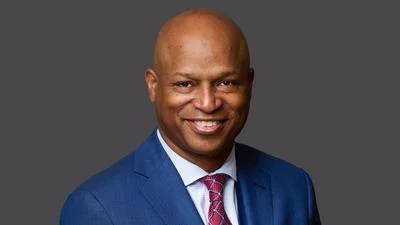OPRF District 200 School Board member Ralph Martire (L) and race-based grading administrator Laurie Fiorenza (R) | Roosevelt University / OPRF
OPRF District 200 School Board member Ralph Martire (L) and race-based grading administrator Laurie Fiorenza (R) | Roosevelt University / OPRF
The administrator leading Oak Park and River Forest High School’s race-based grading program acknowledges she has created separate criteria for black and white students.
But Laurie Fiorenza insists her self-described “racial equity” plan-- which she promises will eliminate racial bias in grading and equalize OPRF student performance by race-- “has nothing to do with race,” and that parents concerned that it does are mistaken.
“It’s really unfortunate because equitable grading practices – if I might be so frank to say – has nothing to do with race,” she told the Wednesday Journal. “It is about making sure that the grade reflects what you know. That’s it.”
Her comments come three days after District Superintendent Gregory Johnson said Fiorenza's "racial equity" plan, detailed in a presentation and an eleven page memo presented to the school board May 26, wasn't about race but rather, replacing traditional grading with "unbiased practices for determining whether students have mastered academic content."
The impetus for her plan: Fiorenza and Johnson believe typical teacher methods of student assessment-- like grading homework assignments, proctoring and scoring exams and expecting attendance and proper behavior in class-- are racially biased against black students at the school and responsible for their performance lagging that of white students.
According to the Illinois State Board of Education (ISBE), last year 88 percent of black students at OPRF tested below grade level in mathematics and 77 percent below grade level in English. On the Illinois State Science Assessment, 76 percent of OPRF black students were deemed "not proficient" and could not demonstrate "essential knowledge and skills" corresponding to the coursework of Biology I.
Fiorenza said changing the criteria for black students’ grades will correct for that bias and improve blacks' academic performance at OPRF.
"We know that traditional grading practices perpetuate the (racial) inequities," Fiorenza told the board.
Board member Ralph Martire said Fiorenza's changes would replace what he said is a "subjective" system of homework grades and quiz scores with one that is fairer to black students.
"If a kid scores zero points on a quiz and three weeks later demonstrates complete mastery of the material that was on that quiz, why should those zero points hold down that kid's grade?, Martire said. "It's not a dumbing down. It's not a concession. It's finding a way to be objective."
Fiorenza said that this school year, she led the OPRF faculty "division heads" in training "centered on racial equity," instructing them on how to change the way they give grades, setting separate expectations for homework, attendance and test-taking for black students, versus white students.
"We're going to focus on a building-wide (racial) equity grading philosophy, helping teachers to continue to infuse those practices in their classrooms," Fiorenza told the board.
OPRF had 3,364 students in 2021, 608 of whom (18.8 percent) were black.
According to ISBE, 332 of those black students (53 percent) were "chronically truant" in 2021, or "missed five or more days of school without a valid excuse" and 40 percent (243) were "chronically absent," or missed more than 18 days of school without a valid excuse.
Tennis is for white people
In January, then school equity director Patrick Hardy told board members about Fiorenza's work "racializing" the school's grading systems.
"I’m saying... you need to call Dr. Fiorenza about teaching and learning and where equity is happening there," he said. "Dr. Fiorenza has been doing a phenomenal job racializing our work. The racialization of assessment and how do we build equitable assessments."
"The administration, the leadership knows, they’ve heard this from me a million times in different ways in different spaces. Equity is everywhere. Everything is about equity," he said.
OPRF school leaders have long promised parents and taxpayers that the school's top priority would be enforcing "racial equity," or providing a counterweight to the"white privilege" they believe holds back black academic achievement.
"Institutional racism means social policies, practices, procedures and/or discourse that benefit people who are white at the exclusion of people of color," says the OPRF school handbook. Over nine pages, it meticulously outlines how every school decision-- from curriculum decisions to prioritizing capital projects-- must be considered through a "racial equity analysis tool" that assesses whether it will benefit black students first.
"Per student athletic data, tennis is a sport that has historically had higher levels of envolvment (sic) from White students," reads an analysis of OPRF capital projects. "Prioratizing (sic) the upgrade of the poor conditions of the courts in (sic) necesssary. However, setting the tennis courts as priority would mean that we are prioratizing (sic) spaces that advantage White students over spaces that students of color occupy."
To justify a proposed expenditure of re-surfacing the school tennis courts, which would benefit white students disproportionately, the analysis calls for school leaders to "develop a strategy on how to increase student of color participation in the tennis program."
A field used by lacrosse and field hockey teams is given similar scrutiny, with the recommendation to "develop a strategy on how to increase student of color participation in the field hockey, soccer, and lacross (sic), programs."
In a January update to the board on his work. Hardy "said he believed this "institutionalizing" of racial equity via a "109 item plan" throughout OPRF would make it a "model school for racial equity where students' academic achievement and social and emotional growth will no longer be predictable by race."
"Stakeholder groups acknowledge that the district has sustained its racial equity work over several years," he wrote. "Faculty generally appreciate the ongoing self-reflection and discourse about racial equity."






 Alerts Sign-up
Alerts Sign-up